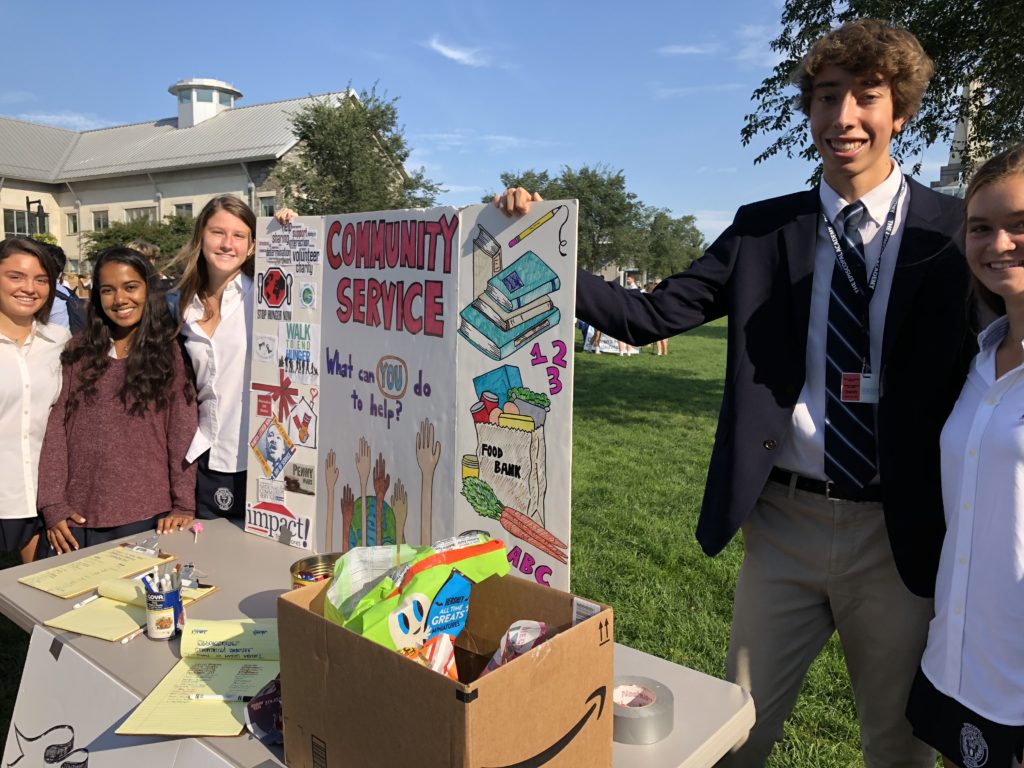Krissie Essilfie ’21

The fundraising process at EA is currently undergoing changes to improve transparency and accuracy within the system. This new change is aimed towards refining the process for applying to make a fundraiser a reality, as well as better defining what goes into the decision-making process when potential fundraisers are considered. Timothy Gavin, teacher and Head School Chaplain, explains, “We’re in the process of creating a policy that’s clearer and has more educational value.”
The current application process to submit a fundraiser is not very specific, but there are a few major checkpoints that need to occur. Michael Letts, Head of Upper School, mentions, “Currently, you need to speak with Chaplain Gavin and also our director of advancement, which is Mrs. Fifer. We do have policies and procedures that are in place that they look at, but ultimately the decision comes down to those two individuals.” Before handing it off to Chaplain Gavin and Mrs. Fifer, however, it is recommended that applicants have their ideas reviewed by a Dean or school administrator. To better organize this, the process of revising the fundraising policy has been undertaken recently. Gavin says, “We’re looking at how we can streamline that so the impact of our giving is greater.” In addition to simply making the process clearer and more uniform, they wish to redefine the meaning behind fundraising at Episcopal. “The question we have to ask is, what is the impact of our giving? Is it a positive impact or a negative impact? We also have to ask, why are we giving to a certain organization and not another? Those are questions we also have to answer,” Gavin adds.
When reviewing fundraisers that have been submitted, there are a few things to consider that make up the thought process behind the decisions that are made, including partnerships with specific organizations. Jennifer Fifer, Director of Institutional Advancement, says, “When we’re thinking about our partnerships with the community and community service, we have to make sure that our service activities and fundraising activities are really to help community partners of the school.” EA partnerships are one of the factors considered first and foremost in deciding whether or not an event can be an EA fundraiser. Fundraisers which benefit Episcopal partners are often prioritized in the decision-making process, and this helps narrow down the number of fundraisers are accepted. Narrowing down the amount of fundraisers to just a few is also important to the community. “We… coordinate fundraising events so that two or three things aren’t happening at one time, so we don’t diminish our potential for raising funds for any particular project,” Gavin emphasizes. By limiting the amount of fundraisers that EA supports, we can better direct our efforts to deliver the maximum impact for these projects. In addition, this prevents overloading the community with many efforts to support. Fifer explains,“We have a really large broad community with a lot of interests and priorities. Everybody would have some organization or mission that’s really important to them and we want to make sure that we’re not overwhelming our community by asking them to support too many things.” A final reason that factors into the necessity of keeping the number of fundraisers from reaching too high is the expense it demands of families. Letts remarks, “We can’t continue to solicit our families to support so many organizations. As a parent, I understand that we want to be as generous and supportive of other organizations outside of Episcopal as we possibly can, but when it’s tied to Episcopal becomes difficult. We can’t ask parents 15-20 times a year to give money to certain things.”
While the amount of EA fundraisers has to be limited, fundraising is very important to the EA community for many reasons, including support for the school itself. “When you think about fundraising, one of the most important priorities is supporting the school. These include things like the Episcopal fund, which supports all the day-to-day things that make the EA experience so great,” Fifer mentions. Our impact on the community, however, is another important reason behind Episcopal fundraisers. Gavin says, “We have a generous community and people do want to give, so we want to make sure that our giving has the greatest impact on the receiver.”
The changes that are occurring and the decisions being made about and within the fundraising process have an active impact on the current EA community as well. The EA Danceathon has undergone changes due to concerns that it requires too much from the Episcopal community. Letts says, “It (the change) was around the idea that there was a lot of additional fundraising that went into Danceathon, and by tying it so closely with Episcopal and the Upper school, a lot of families felt like they were required to buy a T-shirt and make a pledge and sponsor a dancer and that’s a lot to ask for. So, we felt like it would be better to still have the dance to support CHOP, but only use the the ticket sales and not the additional things.” This change, along with the general fundraising changes, aims to create the greatest impact in the most positive ways possible. As Gavin concludes, “It’s a question of, do we give to 100 different organizations which has less impact, or do we streamline it so that the beneficiary of the giving ends up having a greater impact and benefit?”